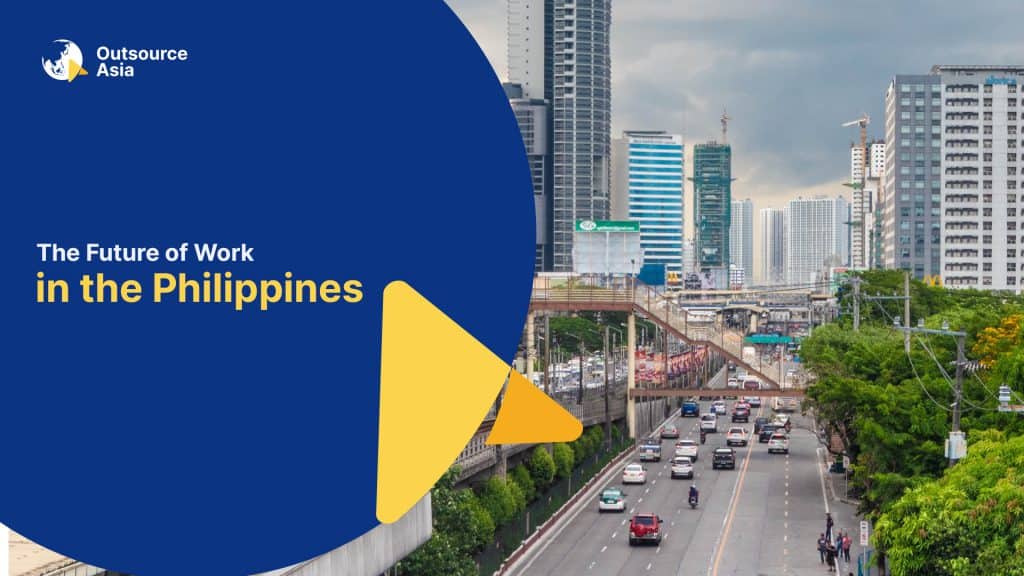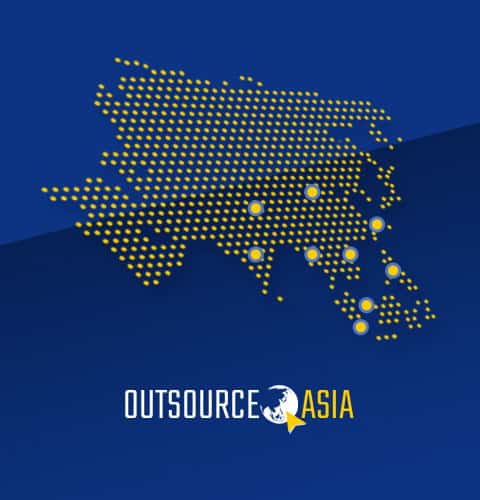
The Future of Work in the Philippines
This article on the future of work in the Philippines examines aspects of the post-pandemic era, ranging from the overall status of the local labor market up to the long-term influence on consumer consumption and business recovery. See how organizations respond towards the impact of automation and technology to job availability and employment growth in the new normal. There is also assessment on commitment to gender equality, diversity, and inclusion as well as decisions by policymakers and business leaders on aspects of cybersecurity management and data and privacy protection.
Status of Local Labor Market
According to the National Economic and Development Authority (NEDA) report, unemployment rate increased from 8.1% during Q2 2020 to 8.9% during Q3 2020 while the labor force participation rate decreased from 63.6% to 63.3% in the same period. The net employment loss is only tempered thanks to almost 2 million jobs during the end of Q2 2020, mostly coming from the wholesale and retail trade as well as in other businesses within the services sector.
“These results were expected as many parts of the country remained under stringent and blanket quarantines for most of the survey period. In particular, the modified enhanced community quarantine was extended in the National Capital Region (NCR) up to September 15,” said Socioeconomic Planning Secretary Karl Kendrick T. Chua.
As more people find more productive work, Chua belied that better labor outcomes can be expected. The full impact of the implementation of granular lockdowns in NCR has been effective in bringing down cases from its peak during Q3 2020.
“Overall, the economy has generated 1.1 million employments above the pre-pandemic level. This signals the Philippines’ continuing recovery. We look forward to the expansion of the alert level and granular lockdown system to the whole country to recover more jobs and livelihoods,” said the NEDA chief.
Consumer Consumption and Business Recovery
According to Fitch Solutions report, there would be at least $200 billion worth of consumer expenditures in the Philippines by 2022 due to increasing consumer confidence, improving employment rate, and higher household consumption.
“Over 2022, consumer spending growth will begin to moderate, as the Filipino consumer continues its recovery from the contraction in 2020. While unemployment rate is still higher than the pre-pandemic environment, this better outlook stems from expectations that there will be more jobs, higher income, looser restrictions, and more businesses reopening,” Fitch Solutions said.
The main driver of economic growth is the rebound in consumer spending, which contributes 72.7% of GDP in 2022. As a result, the Philippines’ economy is expected to fully recover only in 2022, with more conventional growth patterns returning in 2023.
At the same time, local businessmen across all sectors are optimistic that there would be ‘more upbeat’ business recovery for the whole duration of 2022, which brings overall confidence index at 56%, according to the Bangko Sentral ng Pilipinas (BSP).
“Respondents attributed their optimism to the availability of more jobs, additional and higher income, effective government policies and programs, and stable prices of commodities. The improved consumer sentiment for the fourth quarter was observed across the three indicators: the country’s economic condition, family’s financial situation, and family income,” BSP said.
Impact of Automation and Technology to Job Availability
1. 5G and the Internet of Things (IoT)
From a mere 23 million Filipino internet users in 2010, there are now almost 75 million users which is mainly attributed by the COVID-19 pandemic. According to World Bank Digital Economy Report 2020, while internet services in the Philippines are comparatively more expensive with slower broadband speeds and unequal access due to a lack of competition and limited infrastructure, the government is looking to boost connectivity with a National Broadband Plan that seeks to foster faster deployment of digital infrastructure, especially in remote areas, and a free wi-fi program to provide free internet access in public areas.
Mr. Philip A. Martinez, Senior Science Research Specialist at DOST-Advanced Science and Technology Institute (DOST-ASTI) said that the Philippines, being one of the first Southeast Asian markets that rolled out 5G technology, enabled the country to open opportunities to develop Internet of Things solutions which can be applied in various industries.
2. Applied AI
The accelerated digitization in sectors including financial services, high tech and telecom, manufacturing, healthcare, transportation and logistics, and education is boosted by rapid AI adoption. Research suggests that this would lead to having more than 50% of user interactions augmented by AI-driven speech, written word, or computer-vision algorithms by 2024. The Department of Trade, realizing the value of AI as a nation-defining capability and asset, will collaborate with private sector-led National Center for AI Research (NCAIR) to nurture and develop AI talent in the country.
“The N-CAIR will serve as the country’s shared hub for AI research that will be instrumental in making the Philippines an AI powerhouse,” said Trade and Industry Secretary Ramon M. Lopez.
Disruptions resulting from the effective implementation of AI will see labor displacements from repetitive tasks in micro, small and medium enterprises (MSMEs). However, there will be faster development cycles for new applications, and more detailed customer insights for companies; at the same time, there will be an increasing need for highly specialized services and talent.
“Through the AI Roadmap, we hope to establish the Philippines as an ‘AI Center for Excellence’ in the region that is backed by our rich local talent pool and vibrant innovation and entrepreneurship ecosystem. Our country can also serve as a big data processing hub providing high-value data analytics and AI services to the world, and this can become our next higher value, higher paying service-winner after the BPO industry,” said Lopez.
3. Distributed Infrastructure (Cloud and Edge Computing)
A 2021 Global Data study said that the Philippines is among the top users in e-commerce adoption and that its data center market value in 2020 is $280 million. As enterprise cloud expenditures increase from $1.8 billion in 2020 to $2.6 billion by 2024, this will empower IT companies to stretch their computing power to the edge of their networks, to expand reach to data-hungry devices across a large number of dispersed locations with less latency, and to support faster decision making with on-demand advanced analytics.
“After being widely-recognized as the outsourcing capital of the world, this is the natural next step for the Philippines as our country now has all the necessary elements in place to make it happen and be the next hyperscalers hub in the region,” said DTI Secretary Lopez. “Alongside our thriving digital economy and good economic profile, becoming a hyperscaler hub will propel our economic growth even further, especially as we continue to implement short-term and long-term strategies to sustain the country’s recovery amid the pandemic,” he added.
Given the impact of COVID-19 on business operations and working arrangements, a recent survey revealed that more than 50% of local businesses have adopted more cloud-based IT solutions while almost 75% of Filipino business owners view hybrid cloud solutions as critical to disaster recovery and business continuity efforts. Nearly 70% of the survey respondents are confident that a partnership with a reputable third-party vendor can help achieve business goals faster and better than relying on an in-house team.
4. Process Automation and Virtualization
Process automation and virtualization will result to job loss in the outsourcing and electronics sectors in the country, but it will also revolutionize employment and create new roles within those industries.
The Philippines Skills Framework Initiative, in response to automation-led employment disruption, is now prioritizing skills development in the most vulnerable sectors: construction, creatives, food, health and wellness, IT-BPM, logistics and supply chain, manufacturing, and tourism. The interagency initiative uses the SkillsFuture Singapore framework as a reference in developing skills for local industry and creating a common skills reference to match employers and workers.
“Employers will be able to identify the skills and competencies a potential employee must have to be able to effectively fulfill a job role. Companies can also use the framework to design progressive human resource management and talent development plans for their employees,” DTI Secretary Lopez said.
Commitment to Gender Equality, Diversity, and Inclusion
World Economic Forum’s 2021 Global Gender Gap Report highlighted that out of 156 countries, the Philippines is at 17th overall place for promoting gender equality in terms of economic participation and opportunities, particularly senior roles in business and leadership. “It is the top country in Asia and the sole Asian country that made it to the top twenty tier followed by Lao People’s Democratic Republic which ranked 43rd,” the report noted.
Country progress towards gender parity is measured using four factors: economic participation and opportunity, educational attainment, health and survival, and political empowerment. “It has closed 80% of the Economic Participation and Opportunity gender gap, with women outnumbering men in senior and leadership roles, as well as in professional and technical professions. It is only one of four countries to achieve this feat. The country ranks 5th on the indicator assessing gender wage equality, with a score of 81.2,” the report emphasized.
Meanwhile, the 2021 Philippines Women Empowerment Principles WEPs Awards by UN Women and the European Union awarded nine Philippines-based companies championing women’s empowerment in areas such as Community Engagement and Partnerships, Gender-Inclusive Workplace, Gender-Responsive Marketplace, and Youth Leadership (under 35).
Learn more about how Outsource Asia can help your organization embrace the future of work.

